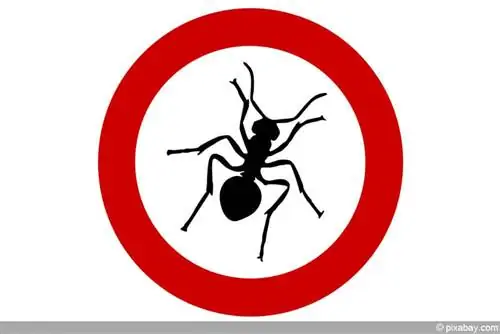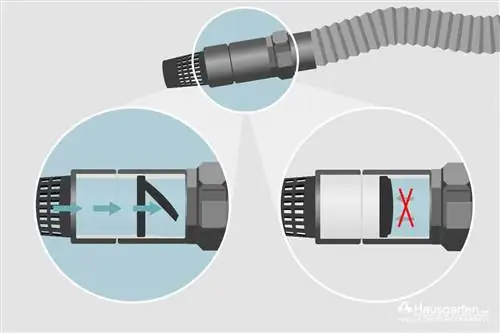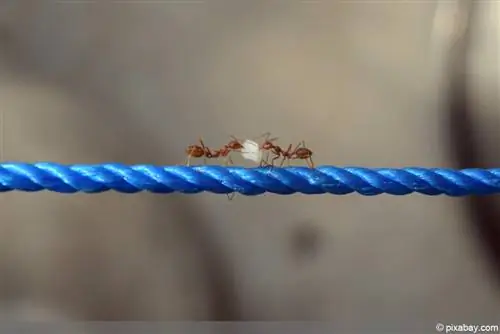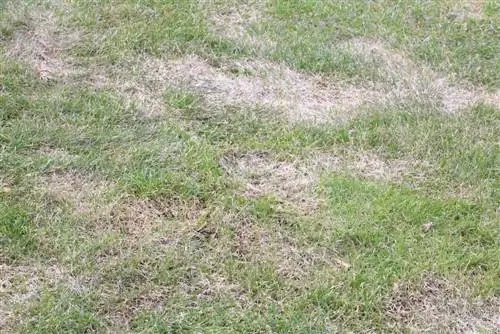- Author admin caroline@plants-knowledge.com.
- Public 2023-12-17 03:39.
- Last modified 2025-01-24 12:45.
Ants can become a nuisance once they find their way into the house. Although they are not considered storage pests, they are still not pleasant companions. A quick solution to the problem is particularly desirable if there are children or pets in the apartment. Ant sprays are a method to combat the insects.
Ingredients and effects
Ant killers contain active substances that effectively fight ants. In addition, the products are enriched with so-called inert or uninvolved substances that complete the recipe. This group of substances includes stabilizers, blowing agents, fragrances and preservatives that are not used to combat insects. The actual active substances are various pyrethroids, which act as contact poisons against various sucking, biting or crawling insects. If ants come into contact with the active ingredients, the sodium channels in the nerve membranes are blocked. This constipation no longer resolves itself and initially leads to spastic paralysis. The insects can no longer move and eventually die. There are various synthetic pyrethroids that are approved as biocides in Germany. They have different properties:
- Imiprothrin: slightly toxic to mammals but highly harmful to aquatic organisms
- Cypermethrin: can be broken down by insects if the dose is not sufficient
- Prallethrin: moderately toxic to mammals, highly toxic to aquatic organisms and bees
Tip:
Avoid ant poisons that are offered as granules or casting agents. If the substances get into the garden soil, they are not broken down but are absorbed by plants such as fruit and vegetables.
Advantages and disadvantages
Ant sprays work particularly quickly. They are easy to use and precise. However, the agents do not have a selective effect. They can also be used against other unwanted crawling insects, but they also harm beneficial insects. The biggest disadvantage is that ant spray is very easily inhaled by humans and pets. Terrariums, aquariums and animal cages should therefore be removed from the room before use. If used outdoors, it can be washed away when it rains. Indoors, it is removed by cleaning and needs to be applied more frequently until the problem goes away.
He alth
Although the products are classified as harmless to humans, you should still not inhale the spray mist. The various active ingredients can irritate the respiratory tract and, if inhaled frequently as a result of multiple applications, can lead to various respiratory diseases. Therefore, use ant sprays carefully and ensure that the interior rooms are well ventilated. In principle, bait cans are more suitable than sprays, as these products do not release any spray mist containing active chemical substances into the room air.
Note:
When purchasing ant spray, pay attention to the recommended area of use. Products for the garden usually smell much more intense and are not suitable for use indoors.
Fight ants naturally
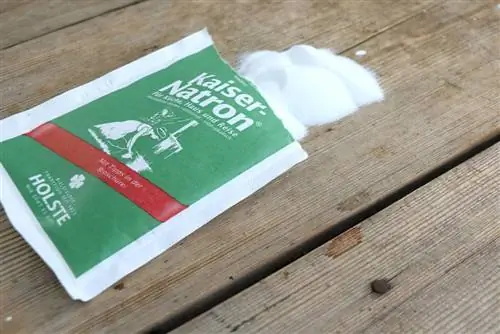
There are numerous home remedies that protect your he alth and combat the ant plague naturally. Even though these methods sometimes take a little longer to completely eliminate the ants, they are still preferable to chemical agents. Home remedies are environmentally friendly and do not affect beneficial insects or other living creatures.
- Natron: swells in the ants' stomachs so that they burst
- Adhesive tape: stuck on an ant road, ants lose the scent trail and can no longer find the way
- Chalk: has a similar effect to adhesive tape
- Neem oil: prevents the reproduction of ants
- Cinnamon: impairs the sense of direction when scattered on the ant trail

